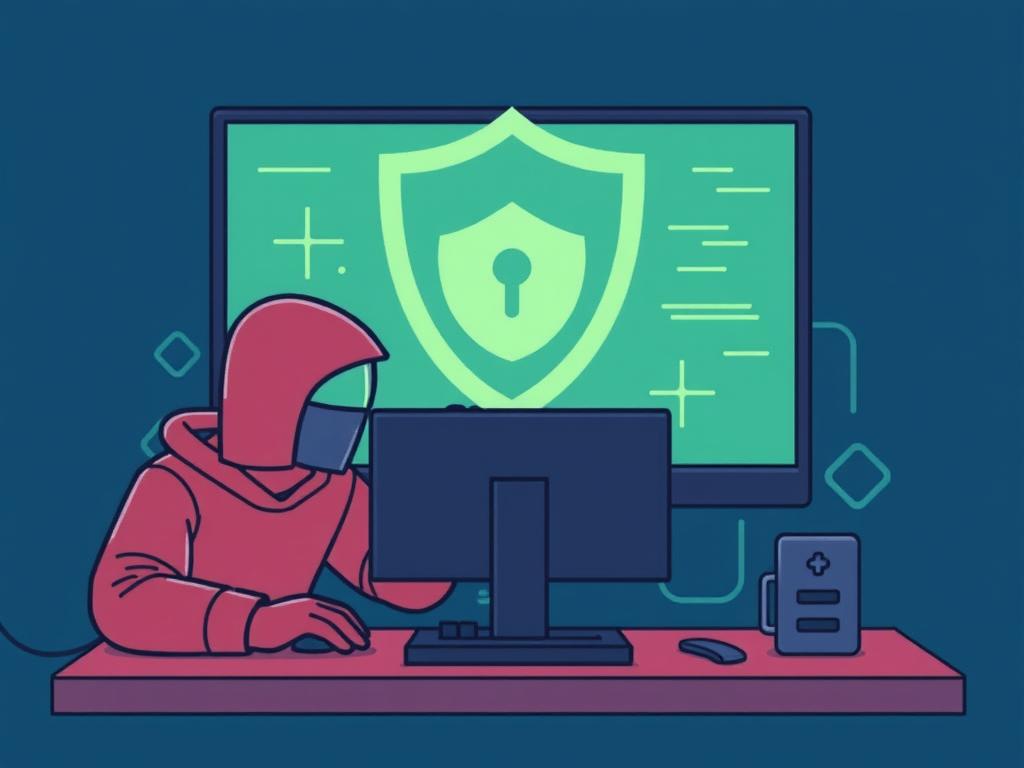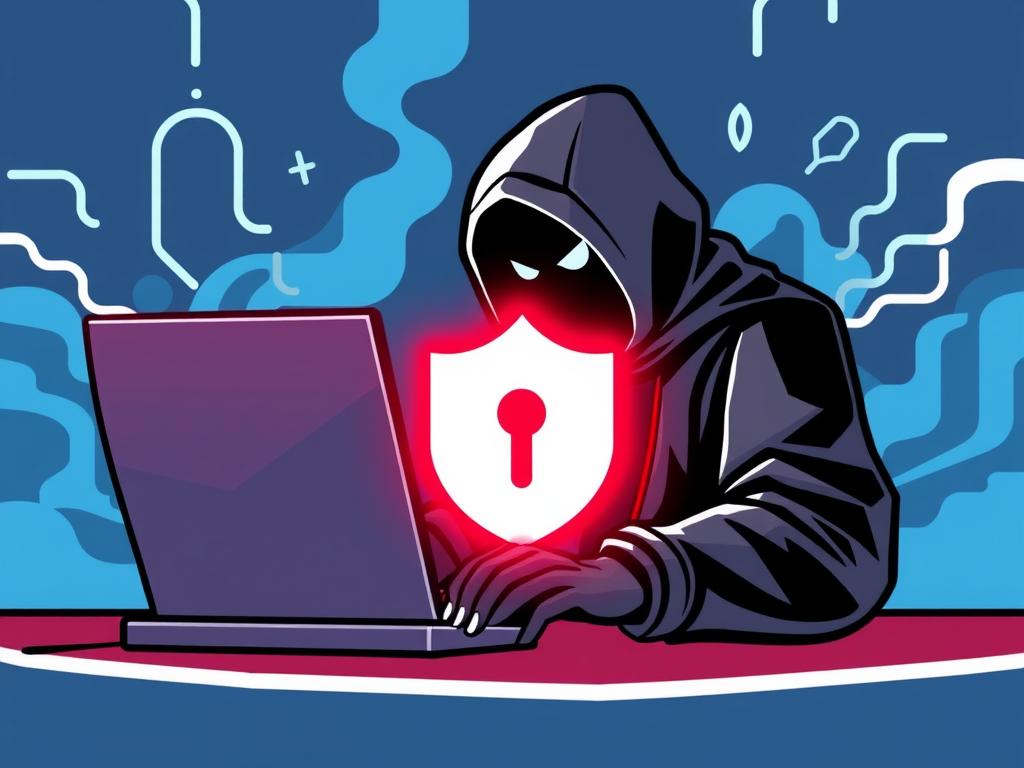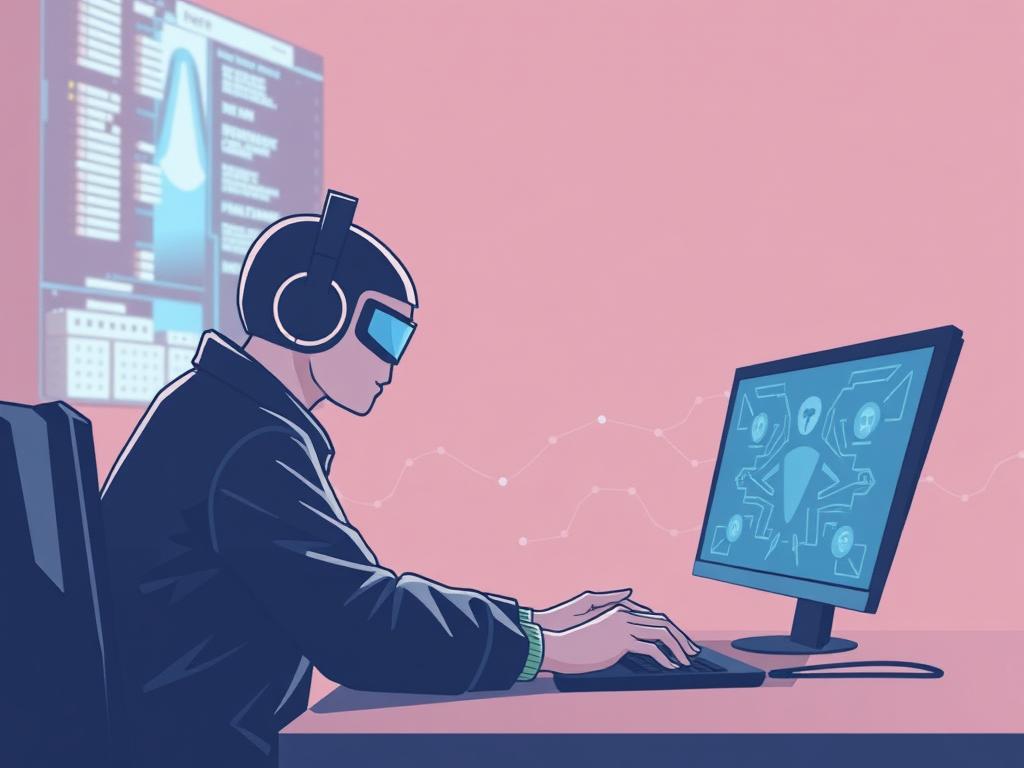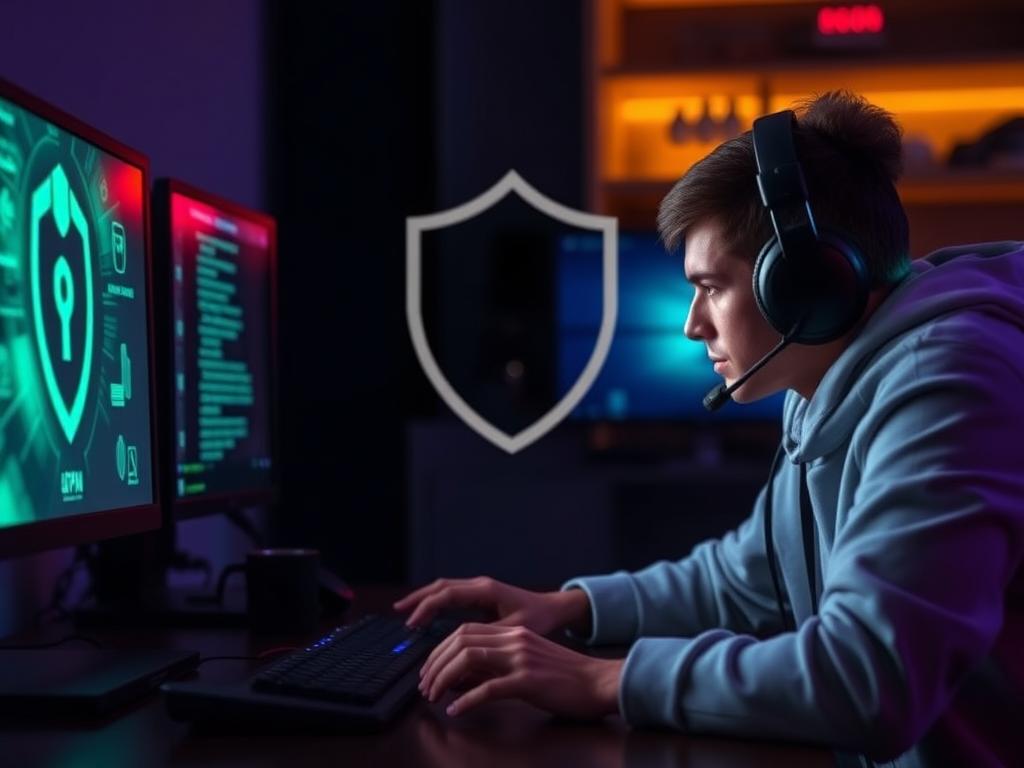If you’re an avid gamer, you’ve probably heard whispers about the dreaded DDoS attack—those frustrating interruptions during your favorite online matches that can ruin the experience. With competitive gaming on the rise, more players are searching for ways to protect themselves and keep their connections stable. One common suggestion is to use a VPN, or Virtual Private Network, to shield against these attacks. But does a VPN really help with DDoS protection in gaming? Let’s dive deep into the mechanics behind it and find out if this tool is a gamer’s shield or just a myth.
Understanding DDoS Attacks and Their Impact on Gamers
Before we talk about whether a VPN can help, it’s important to understand what a DDoS (Distributed Denial of Service) attack actually is. Imagine a huge crowd flooding a store’s checkout line all at once, overwhelming the cashiers so they can’t serve legitimate customers. That’s essentially what happens in a DDoS attack on a gaming server or your home internet connection. Attackers send an enormous flood of fake traffic, causing the server or your connection to slow down or crash completely.
For gamers, this means lag spikes, sudden disconnections, or even being unable to connect to game servers at all during an ongoing attack. In competitive and online gaming, this can be devastating, leading to lost matches, rank drops, and an overall frustrating experience. Some attackers specifically target individual gamers’ IP addresses to knock them offline during critical gameplay moments.
Why Are Gamers Targeted?
- Competitive Advantage: Opponents or hackers might use DDoS attacks to sabotage players during matches.
- Harassment: Some players become targets for online harassment and bullying through attacks.
- Extortion: In extreme cases, attackers demand ransom payments to stop attacks.
What Is a VPN and How Does It Work?
A VPN, or Virtual Private Network, acts like a secure tunnel for your internet traffic. Instead of directly connecting to the gaming server, your data is routed through the VPN provider’s servers first, masking your real IP address and encrypting your connection. This can help protect your privacy and security online by preventing third parties from easily identifying your IP or intercepting your data.
In simple terms, the VPN replaces your IP with a different one from its server network, which can be located anywhere in the world. Because your real IP is hidden, it becomes harder for attackers to target you using your home IP address.
How Does a VPN Differ from Traditional Security Measures?

| Security Method | Main Purpose | Effectiveness Against DDoS |
|---|---|---|
| Firewall | Filter traffic and block malicious connections | Limited; generally blocks known threats |
| Anti-DDoS Services | Absorb and mitigate large DDoS traffic volumes | Highly effective for servers |
| VPN | Hide users’ real IPs and encrypt data | Moderately effective for individual users |
Does Using a VPN Help with DDoS Protection in Gaming?
The short answer is yes—but with some important caveats. Since DDoS attacks typically target your IP address, hiding your real IP with a VPN can protect you from direct attacks at home. When you connect through a VPN, attackers see the VPN server’s IP instead of yours, making it difficult to flood your personal connection with attack traffic. This means that, for many gamers, a VPN provides a layer of defense against being singled out for DDoS attacks.
However, not all VPNs are created equal. The quality and reliability of the VPN’s network play an important role in how effective it is at preventing or reducing the impact of DDoS attacks.
What Makes a VPN Good for Gaming and DDoS Protection?
- Fast Server Speeds: Gaming requires low latency; slow VPN servers will cause lag.
- Robust Anti-DDoS Infrastructure: Some VPNs have built-in DDoS protection for their servers.
- Reliable Uptime: Server stability is key during long gaming sessions.
- Large Server Network: Allows easy switching if one server becomes targeted.
- No Logs Policy: Ensures your IP isn’t stored or exposed by the VPN provider.
If a VPN provider’s servers themselves get targeted by a DDoS attack, it could impact your gameplay regardless of protection. This is why choosing a VPN well-known for gaming and security matters a lot.
When a VPN Might Not Fully Protect You from DDoS
While a VPN can mask your IP address and prevent direct attacks on your home network, it doesn’t make you completely invisible or immune to all forms of attack. Here are some limitations to bear in mind:
- Game Server Attacks: If the game’s servers are being DDoS’d, it won’t matter whether you use a VPN because the problem is with the server itself, not your connection.
- VPN Server Targeting: Attackers may target VPN servers, causing temporary outages or degraded service.
- Latency Issues: Adding a VPN can sometimes increase ping times, which might affect gameplay quality.
- Incorrect Setup: Some games or systems might leak your real IP address through certain features, defeating the protection.
- Shared IP Addresses: Many VPN users share the same IP, which could lead to blacklisting or connectivity problems.
How to Use a VPN Effectively for DDoS Protection in Gaming
So, if you decide a VPN is worth trying, here are some pro tips to make the most out of it:
- Choose a VPN Known for Gaming: Look for providers with good reputations, low latency, and anti-DDoS features.
- Connect to Nearby Servers: This reduces ping and ensures faster connections.
- Check for IP Leaks: Use tools to confirm your real IP is hidden.
- Switch Servers if Needed: If one server slows down or gets targeted, move to another quickly.
- Combine with Other Security Measures: Use firewalls and strong passwords to protect accounts too.
Popular VPN Providers for Gamers
| VPN | Key Features | Typical Ping Impact | Anti-DDoS Capability |
|---|---|---|---|
| ExpressVPN | Fast servers worldwide, strong encryption, reliable uptime | Low to moderate | Moderate |
| NordVPN | Large server network, dedicated IP options, secured protocols | Moderate | Strong |
| CyberGhost | Optimized gaming servers, easy to use, good privacy policies | Low to moderate | Moderate |
| ProtonVPN | Strong privacy focus, AES-256 encryption, free and paid plans | Variable | Moderate |
Alternatives and Complements to VPN for DDoS Protection

While a VPN can reduce the risk of DDoS attacks on individual gamers, it isn’t the only or complete solution. Here are other measures to consider:
- Dedicated DDoS Protection Services: Some advanced tools can filter and absorb attack traffic before it impacts your connection.
- Change Your IP Address: Your internet provider might be able to assign a new IP if you’re targeted.
- Use Wired Connections: Wi-Fi is generally less stable and more vulnerable to interruptions.
- Network Hardware Security: Enable firewalls and update router firmware.
- Contact Game Support: Report attacks—some games have built-in protections or can help isolate attackers.
Final Thoughts on VPN and DDoS Protection in Gaming
For gamers wondering, “does a VPN help with DDoS protection in gaming?” the answer is generally positive but nuanced. VPNs offer a valuable layer of defense by hiding your real IP, making targeted attacks more difficult. However, not all VPNs are equal, and the protection they provide isn’t foolproof. The best approach to safeguarding your gaming experience includes using a trusted VPN alongside other security measures like firewalls, good network hygiene, and choosing games and providers that emphasize online security.
Conclusion

In the fast-paced and competitive world of online gaming, DDoS attacks are a real threat that can disrupt your fun and performance. Using a VPN can indeed help protect your connection by hiding your real IP address and mitigating the risk of direct attacks. Still, the effectiveness depends heavily on the VPN provider’s quality and your proper usage of their service. Keep your connection secure by choosing a gaming-friendly VPN, monitoring your network, and staying vigilant. Combined with other best practices, a VPN can become an effective tool in your arsenal against DDoS attacks, allowing you to enjoy smoother, safer gameplay.
